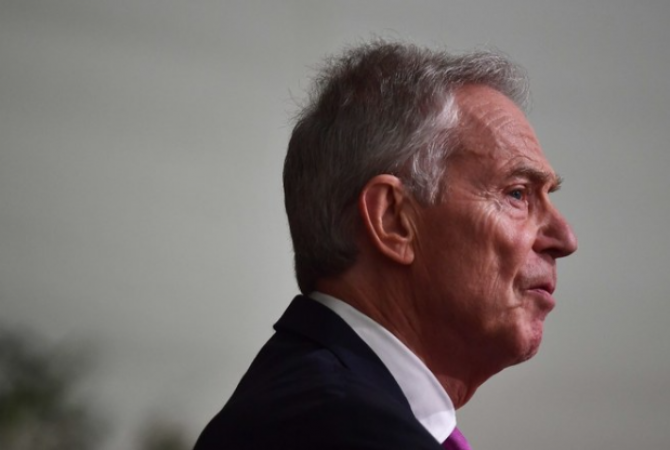
UK: The UK could experience a terrorism incident "even more appalling" than the World Trade Center attack, former UK Prime Minister Tony Blair was warned after 9/11, the BBC reported on Wednesday.
Former Defense Secretary John Stanley forewarned Blair in a letter that terrorists would probably use a dirty bomb to target Britain, according to recently declassified documents.
The government should proceed as though one or more British cities will be attacked by WMDs "in the near and foreseeable future," according to Stanley, a former adviser to Margaret Thatcher, according to The Times.
Also Read: Swedish Humanitarian Group Suspends Operations in Afghanistan Over Taliban Directive
I don't need to tell you that the number of fatalities, the time it will take for huge numbers of people to die, and the level of excruciating pain endured by the victims will all be far, far greater than anything we have seen in New York or Washington this week," he continued in the letter, which was sent days after 9/11.
The issue was kept under wraps within the government, Stanley informed Blair, as it "was not in the national security interest" to make the warning public.
Stanley argued that although Blair increased security at UK airports and government buildings right away after 9/11, the government should concentrate on countering WMDs by building up vaccine and radiation supply stocks, among other things.
Also Read: Next week, Thailand will hold a new election for prime minister, but Pita's bid is unsuccessful
Stanley also suggested loosening the rules on detention and increasing government surveillance of potential terrorists.
Blair's hesitation to act against the coalition that was formed in the wake of 9/11 by starting an immediate invasion of Iraq is also revealed by the series of declassified letters.
Another contentious event was the US anthrax attacks of 2001, which happened soon after 9/11.
Seven years later, a senior US microbiologist was identified as the lone perpetrator, but at the time, the attacks were suspected to have been carried out with similar motives to the World Trade Center attack, either by Al-Qaeda or Saddam Hussein's Iraq. Blair, however, raised the possibility that the anthrax had been made in Iraq in private.
Blair's chief of staff Jonathan Powell wrote in a memo: "We had to be careful about making accusations. In due course, Blair would not be opposed to dealing with Saddam Hussein.
But we shouldn't jeopardize the coalition by attacking Iraq right away. We were likely to lose both France and Germany because the Muslim world was so fragile.
Thatcher and Blair also corresponded in the letters, with the former praising the latter for his support of the US after 9/11, according to The Guardian.
Thatcher wrote the following in a handwritten note dated April 4, 2002: "You will have discovered, as I did, that just as one international crisis subsides, another soon threatens.
"I am so impressed with your tenacity. You have made sure that Britain is recognized as an ardent supporter of freedom and as an enduring ally of the United States. The very best reputation our nation can have is that.
Also Read: Bangladesh's pharmaceutical sector will look for business opportunities with Gulf nations
The Blair administration appeared to have taken seriously Stanley's worries about a potential deadly terrorist attack on Britain because steps were taken behind the scenes to strengthen anti-terrorism measures.
However, David Omand, a former security and intelligence coordinator in the Cabinet, claimed that many of the changes were made behind closed doors out of worry that the administration might "put people in fear."